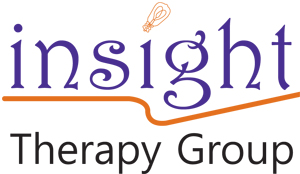THERAPIES FOR INDIVIDUALS
Exposure and Response Prevention (ERP)
Exposure and Response Prevention, known more commonly as ERP, is an evidence-based therapy model used to treat Obsessive-Compulsive Disorder (OCD) and other anxiety-related disorders. ERP involves gradually introducing one to fear-inducing objects, thoughts, situations, etc. with the intent to not exhibit compulsive behaviors in response. This is done in a structured, purposeful way by a trained therapist in a controlled environment. By reducing compulsive behaviors, the anxiety that induces them will reduce over time. The purpose is to expose one to anxiety-inducing triggers to prevent compulsive behaviors in response.
Exposure can be conducted several different ways, depending on the compulsions that are being targeted. Exposure and response prevention directly targets the distress which you are experiencing and can produce alleviation of symptoms. A reduction in stress can be seen relatively quickly, compared to other modalities, which is another draw to ERP. Your therapist will be there to guide you through the discomfort that may occur while conducting exposures. ERP can be incredibly helpful in reducing symptoms of anxiety, including OCD-type anxiety.
Internal Family Systems (IFS)

Internal Family Systems, otherwise, known as IFS, was first created by Richard Schwartz to address what he called “parts.” This model is both evidence-based and transformative in nature. Think of how you sometimes experience different feelings at the same time. A basic example could be that a “part” of you wants to spend money on something you really like (but don’t necessarily need), while another “part” of you knows that you should stay within your budget because it is more responsible to do so. A deeper example could be that a “part” of you misses a family member that you are estranged from, while another “part” of you is angry because of the hurt you still feel from that relationship or the loss of it.
IFS is based on the theory that we are all made up of “parts,” that all “parts” contain valuable qualities, and that our core Self has the ability to heal and allow our “parts” to become fully integrated and whole. This therapeutic modality works to help you release burdens you are carrying, and when burdens are released your internal systems can function in a balanced way. When our system is in balance, we feel the direct effects in our Self. IFS is effective for treating a variety of conditions such as depression, anxiety, phobias, panic, and physical health conditions with the aim to improve general functioning and well-being.
Internal Family Systems, otherwise, known as IFS, was first created by Richard Schwartz to address what he called “parts.” This model is both evidence-based and transformative in nature. Think of how you sometimes experience different feelings at the same time. A basic example could be that a “part” of you wants to spend money on something you really like (but don’t necessarily need), while another “part” of you knows that you should stay within your budget because it is more responsible to do so. A deeper example could be that a “part” of you misses a family member that you are estranged from, while another “part” of you is angry because of the hurt you still feel from that relationship or the loss of it.
IFS is based on the theory that we are all made up of “parts,” that all “parts” contain valuable qualities, and that our core Self has the ability to heal and allow our “parts” to become fully integrated and whole. This therapeutic modality works to help you release burdens you are carrying, and when burdens are released your internal systems can function in a balanced way. When our system is in balance, we feel the direct effects in our Self. IFS is effective for treating a variety of conditions such as depression, anxiety, phobias, panic, and physical health conditions with the aim to improve general functioning and well-being.
Solution-Focused Therapy
Solution-Focused/Strengths-Based therapy is based on the assumption that each person has their own unique skill set. Utilizing solution-focused and strengths-based questioning interventions, your therapist is there to be a witness to your pain and experience, while working with you to process the problem at hand. As this type of therapy progresses, your therapist works with you to explore and build upon internal and external problem solving, alternative perspective taking, and internal questioning to reinforce changes made and changes that are desired to be made. Future-oriented questions and exception questions help identify goals and to pick out what is already working so that you have a foundation to build upon for change. Solution-Focused therapy is direct and to-the-point, and oftentimes, goals are achieved rather quickly. By focusing on what is going right, you can work with your therapist to find small (or large) solutions or changes to problems that feel overwhelming.
Solution-Focused therapy allows you to address current issues, without diving into issues from the past. Building upon your current strengths and resources is a big emphasis of this therapy modality. Oftentimes when we look for solutions, our minds go to big, extravagant solutions which tend to become overwhelming. Solution-Focused therapy allows us to identify solutions that have worked in the past and explore ways to apply those solutions to current problems.
Within Solution-Focused/Strengths-Based therapy the client is seen as the expert, not the therapist. Solution-Focused/Strengths-Based therapy is especially useful for struggles with self-esteem/self-worth, self-harm, life transitions, emotional regulation, negative self-talk, stress-related issues, relational issues, motivation issues, depression, anxiety, and anger issues, among others.
Dialectical Behavior Therapy (DBT)
Dialectical Behavior Therapy (DBT) is a highly effective treatment for individuals with a variety of complex problems, including substance abuse, borderline personality disorder (BPD), anxiety, and depression. DBT works well in situations where struggles with emotional regulation are at the core of the problems someone is experiencing, and/or interfere with daily functioning. DBT can help you understand, change, and even accept painful emotions. DBT focuses on developing your ability to reduce the impact of the “emotional mind” while preserving the benefits of that emotional mind, such as creativity, passion and empathy. Seeing a therapist who is using DBT in the scope of their treatment with you helps you to learn healthy coping skills to manage strong emotions. This in turn has the potential to make your relationships easier to navigate.
DBT can be thought of as someone speaking the same language but having a different dialect. We may not understand each other due to different perspectives. With DBT skills and therapy you will learn that there may be two right answers to a problem. If your dialect is not understood well by others, DBT can help you “synthesize” your perspective with another’s. This will allow you to regulate your emotions in a different way, and to use more descriptive language to label your emotions and communicate with others. DBT can help you to recognize that emotions can be useful, and even intense emotions can help you bond with others if handled in a skillful manner.

Dialectical Behavior Therapy (DBT) is a highly effective treatment for individuals with a variety of complex problems, including substance abuse, borderline personality disorder (BPD), anxiety, and depression. DBT works well in situations where struggles with emotional regulation are at the core of the problems someone is experiencing, and/or interfere with daily functioning. DBT can help you understand, change, and even accept painful emotions. DBT focuses on developing your ability to reduce the impact of the “emotional mind” while preserving the benefits of that emotional mind, such as creativity, passion and empathy. Seeing a therapist who is using DBT in the scope of their treatment with you helps you to learn healthy coping skills to manage strong emotions. This in turn has the potential to make your relationships easier to navigate.
DBT can be thought of as someone speaking the same language but having a different dialect. We may not understand each other due to different perspectives. With DBT skills and therapy you will learn that there may be two right answers to a problem. If your dialect is not understood well by others, DBT can help you “synthesize” your perspective with another’s. This will allow you to regulate your emotions in a different way, and to use more descriptive language to label your emotions and communicate with others. DBT can help you to recognize that emotions can be useful, and even intense emotions can help you bond with others if handled in a skillful manner.
Cognitive Behavioral Therapy (CBT)
Cognitive behavioral therapy (CBT) is a form of therapy that is effective for a range of problems, including (but not limited to) anxiety and depression. CBT is based on the idea that thoughts, feelings and behaviors are all connected. In other words, our thoughts help determine our feelings and our behavior. Most of us feel as if thoughts just “happen,” but the focus of CBT is to help increase awareness of our thought patterns in order to impact our feelings and behaviors. Negative and unhelpful thoughts can contribute to and worsen emotional difficulties. CBT aims to help people identify when they have negative or unhelpful thoughts, challenge these thoughts, and replace them with more realistic beliefs. CBT can also help people gain a better understanding of behavior, and learn problem solving skills to cope with difficult situations.
Experiential Therapy

Experiential Therapy emphasizes that above all, you as the client have the personal ability to grow. This type of therapy uses interventions designed to promote emotional processing, improve interactions with others, express creativity, and enable deep levels of insight that go beyond traditional “talk therapy.” At its core, Experiential Therapy promotes warmth and acceptance, in addition to the idea that everyone deserves to be seen, heard, and understood.
Within Experiential Therapy, a central goal of treatment involves the individuation of members involved as a way to promote individual growth. Each client participating in this modality of therapy is allowed their own perceptions and unique treatment. Experiential Therapists utilize a spontaneous and authentic approach that also invites clients to be their most “real” or authentic self within sessions. At first, Experiential Therapy may seem as absurd or weird. The absurdity is from the spontaneous approach of the therapist and can manifest in the form of mimicking, playfulness, challenges, and so on.
Experiential Therapy is not only beneficial for individuals, but also familes and couples.
Experiential Therapy emphasizes that above all, you as the client have the personal ability to grow. This type of therapy uses interventions designed to promote emotional processing, improve interactions with others, express creativity, and enable deep levels of insight that go beyond traditional “talk therapy.” At it’s core, Experiential Therapy promotes warmth and acceptance, in addition to the idea that everyone deserves to be seen, heard, and understood.
Within Experiential Therapy, a central goal of treatment involves the individuation of members involved as a way to promote individual growth. Each client participating in this modality of therapy is allowed their own perceptions and unique treatment. Experiential Therapists utilize a spontaneous and authentic approach that also invites clients to be their most “real” or authentic self within sessions. At first, Experiential Therapy may seem as absurd or weird. The absurdity is from the spontaneous approach of the therapist and can manifest in the form of mimicking, playfulness, challenges, and so on.
Experiential Therapy is not only beneficial for individuals, but also familes and couples.
CEDAR RAPIDS LOCATION
3412 Center Point Road NE
Cedar Rapids, IA 52402
HIAWATHA LOCATION
1450 Boyson Road, Suite C1
Hiawatha, IA 52233
CEDAR FALLS LOCATION
600 State Street, Suite D
Cedar Falls, IA 50613
TEL: (319) 382-8660
FAX: (319) 382-8693
